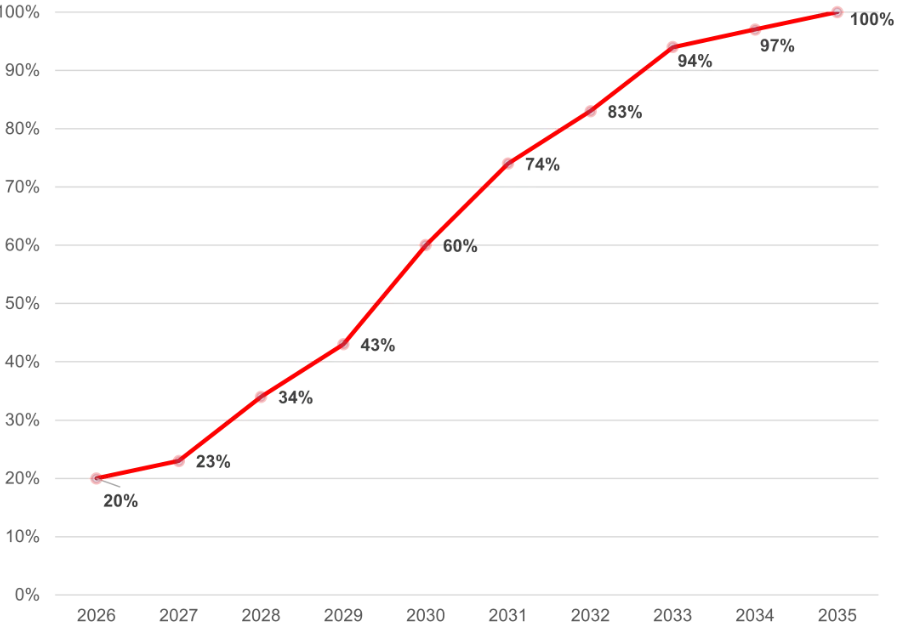Canada adopts mandatory 100% zero-emission vehicle sales target by 2035
22 December 2023
Environment and Climate Change Canada (ECCC) has finalized the Electric Vehicle Availability Standard, a new regulation that sets a mandatory national target of 100% “zero-emission” vehicle sales by 2035.
The regulation—published as an amendment under the Canadian Environmental Protection Act, 1999 (CEPA)—introduces a mandatory ZEV sales target schedule, where the ZEV percentage of all new light-duty vehicle sales increases every year from 20% in 2026 to 100% in 2035.

Zero-emission vehicles (ZEV) are defined as electric vehicles, plug-in hybrid electric vehicles (PHEV), or fuel cell vehicles. PHEVs with an all-electric range of more than 80 km will receive full credit throughout the entire lifetime of the regulation. PHEVs with an all-electric range less than 80 km may receive credits for model years 2026 to 2028.
Automakers can also earn credits for bringing more electric vehicles to market ahead of the target dates and for investing in EV charging infrastructure.
The enforcement of the regulation will be undertaken in accordance with the Compliance and Enforcement Policy for CEPA, which sets out a range of possible enforcement responses to alleged violations, such as imprisonment, fines, and forfeiture of profits that were earned as a result of the offense.
The regulation has been criticized by the auto industry. “Achieving higher ZEV sales levels depends on favorable market conditions, stronger consumer purchase incentives, effective consumer education and awareness, widespread charging infrastructure, expanded grid capacity, and the development of a North American battery supply chain,” said the Canadian Vehicle Manufacturers’ Association (CVMA).
The CVMA also noted that the regulation will have a disproportionate impact on low-income households due to the higher upfront cost of ZEVs, and households living in rural and northern communities that may have lower access to public charging infrastructure.
Source: ECCC